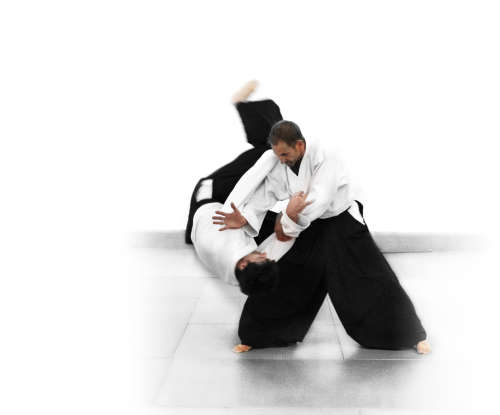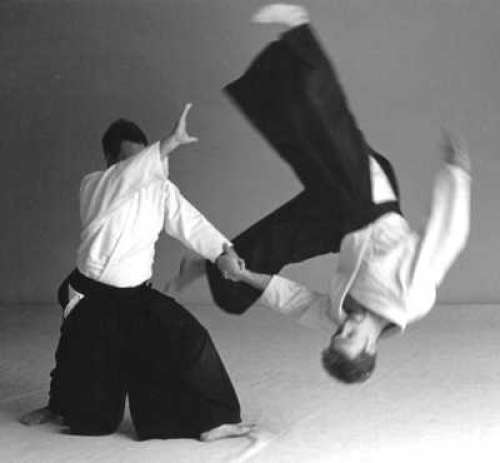"Der Weg verschiedenste Kräfte in Harmonie zu bringen"
Aikido ist eine japanische Kampfkunst, die Anfang des 20. Jahrhunderts von Morihei Ueshiba entwickelt wurde. Die vom Schwert geprägte Kampfkünste Japans zielten darauf ab, den Gegner möglichst rasch auszuschalten. Aikido hingegen verfolgt einen revolutionären Ansatz: neutralisieren statt verletzen.
Auch wenn die Aikido Techniken Ähnlichkeiten mit denen aus Jiu-Jitsu, Kenjutsu und Jōdō aufweisen, werden sie so ausgeführt, dass der Angreifer keinen dauerhaften Schaden – und schon gar nicht den Tod – davonträgt.
Im Training lernt man, die Energie eines Angriffs umzulenken, statt ihr mit roher Kraft entgegenzuwirken. Diese Haltung wirkt auch in den Alltag hinein und hilft dabei, den Umgang mit Konflikten achtsam und konstruktiv zu gestalten.
Hinweise:
Zum Training bitte einen Judoanzug oder bequeme Sportkleidung und Badelatschen mitbringen.
Weitere Informationen unter: aikido.uni-jena.de/takemusu



Aikido is a Japanese martial art that was developed by Morihei Ueshiba at the beginning of the 20th century. The Japanese martial arts, which were characterised by the sword, aimed to eliminate the opponent as quickly as possible. Aikido, on the other hand, takes a revolutionary approach: neutralise instead of injure. Even though aikido techniques are similar to those of jiu-jitsu, kenjutsu and jōdō, they are executed in such a way that the attacker does not suffer permanent damage - and certainly not death. In training, you learn to redirect the energy of an attack instead of counteracting it with brute force. This attitude also has an effect on everyday life and helps to deal with conflicts in a mindful and constructive way.
Aikido promotes physical health and fitness in a variety of ways.- Mobility and coordination: the flowing, often circular movements in aikido improve body awareness, balance and the interplay of arms, legs and torso.
Strength and endurance: the muscles are strengthened - especially in the torso, legs and back.
Balance and stability
- Reactivity and body control: practising attack and defence in partnership trains the ability to react quickly and adapt to external stimuli
- Agility and flexibility: Rolling and falling, as well as techniques with leverage, promote healthy mobility of the joints and tendons.
- Relaxation and breathing: All exercises are combined with conscious breathing, which contributes to relaxation and strengthens body awareness.
Notes:
Please bring a judo suit or comfortable sportswear and flip-flops to training.
Further information at: aikido.uni-jena.de/takemusu